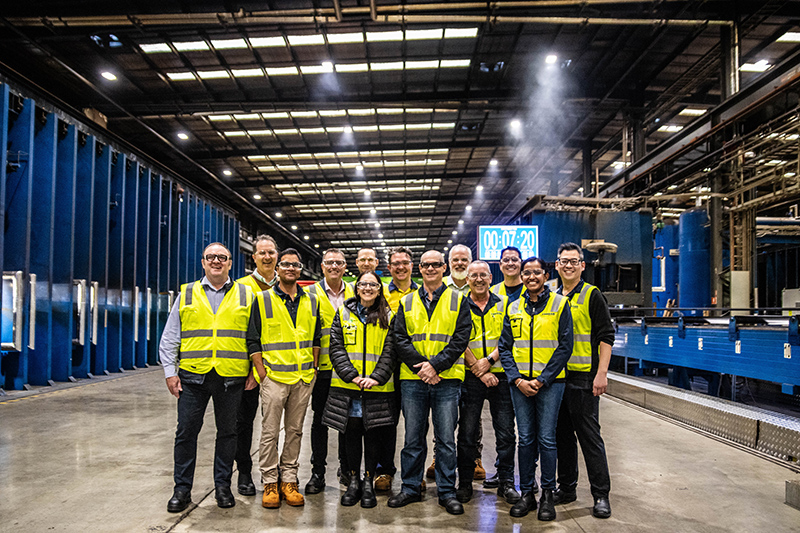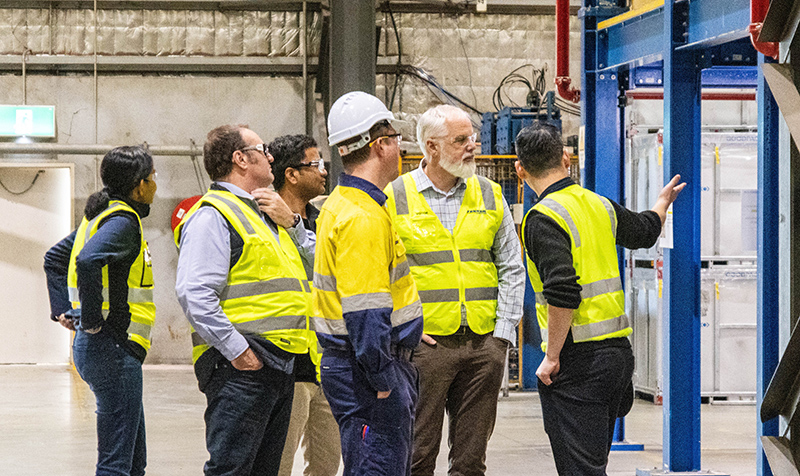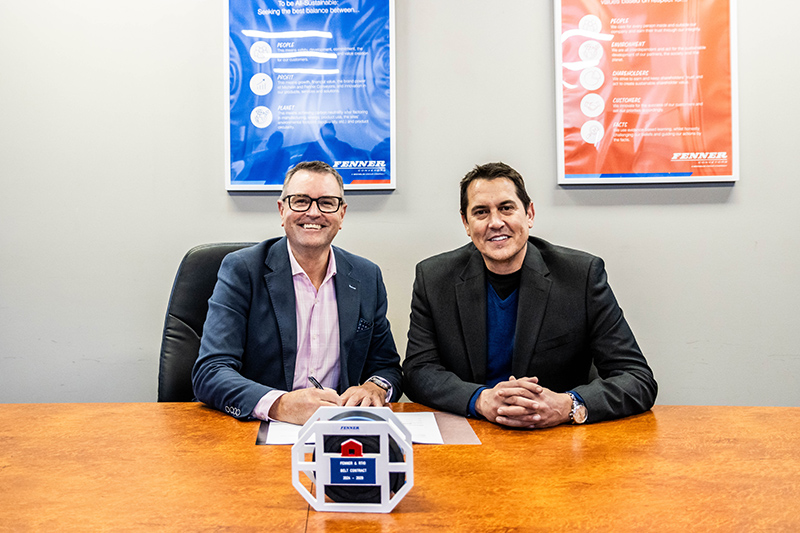Fenner Conveyors and Rio Tinto renew partnership
Published in Bulk Handling Review
The partnership for Australian manufacturing has been renewed with a new five-year contract.
Fenner Conveyors hosted Rio Tinto representatives at its conveyor belt manufacturing facility in Kwinana, Western Australia, to formally mark a renewed partnership for Australian-made manufacturing and local economic growth.

The contract will see Fenner Conveyors supplying conveyor belts and splice kits for Rio Tinto’s iron ore operations across Australia for the next five years.
Through quality, Australian-made conveyor belting, Fenner Conveyors and Rio Tinto are dedicated to fostering supply chain security and sustainable manufacturing operations that benefit local communities and industries.

Fenner Conveyors staff discussed conveyor belt manufacturing processes during the tour. Image: Fenner Conveyors.
During the last contract period alone spanning five years, Fenner Conveyors supported Rio Tinto sites with over 473km of conveyor belt.
During the visit, Fenner Conveyors and Rio Tinto discussed safe and quality manufacturing processes, as well as recent efforts to reduce environmental footprint during manufacturing.
Fenner Conveyors has a road map for achieving net zero at its Kwinana conveyor belt factory, which Rio Tinto has shown keen interest in supporting over the years.
Both companies are also aligned on a commitment to social responsibility. Recently Fenner Conveyors and Rio Tinto both participated in a community event in Karratha with the National Association of Women in Mining (NAWO).
Fenner Conveyors became a NAWO member in mid-2024 as part of its gender diversity strategy, which is currently being developed by Fenner Conveyors’ executive management committee, as it looks to champion a more inclusive future and rethink established systems of work within the industry.
Last year Fenner Conveyors was the official host for its first NAWO event in Karratha, collaborating closely with NAWO’s Western Australia regional sub-committee, and various industry stakeholders and companies operating across the Pilbara.
“We are thrilled to be able to host these events which provide an avenue for local youth to learn about the diverse career opportunities across the field of operations,” Fenner Conveyors managing director Jen Green said.
This commitment to diversity and inclusion in the workplace is shared with Rio Tinto, who has launched a number of initiatives to build a culture of trust on its sites where its people feel safe, respected and empowered.
Alongside the supply of coveyor belting, Fenner Conveyors has been servicing conveyor systems on Rio Tinto sites across the Pilbara for decades. This experience and understanding of Rio operations helps Fenner Conveyors design solutions tailored to site needs.

“We have inland and coastal crews based on Rio Tinto mines, and ports who are established and recognised as valued members of Rio Tinto’s site teams,” Fenner Conveyors area manager Ryan Giltinan said. “Each and every member of these crews are dedicated to helping Rio Tinto achieve optimal operating results.”
The renewed contract highlights Fenner Conveyors’ dedication to Australian manufacturing. With manufacturing facilities in Melbourne, Sydney and Perth, Fenner Conveyors is well-positioned to meet the demands of Rio Tinto’s extensive operations.
The partnership will enhance the efficiency and reliability of Rio Tinto’s conveyor systems, and support local jobs and economic development.
“We are thrilled to continue our strategic partnership with Rio Tinto,”Green said. “This contract is a testament to our commitment to delivering high-quality, Australian-made conveyor belting. We look forward to working closely with Rio Tinto to support their operations and contribute to the growth of the Australian economy.”